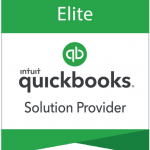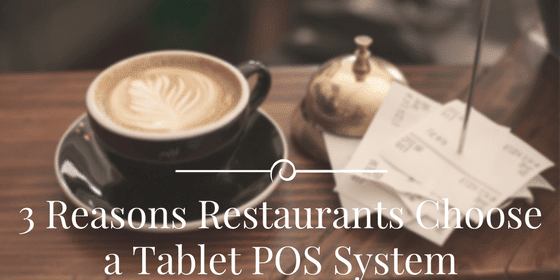If you frequent restaurants to any degree—particularly full-service restaurants—you’ve probably already seen some version of the latest generation of restaurant POS systems. One innovation is the wireless station found on each table that enables the guest to pay the bill and place limited orders such as dessert or drink reorders, in addition to offering incremental revenue generators like games. Moving beyond such systems is the tablet-based POS system, which offers numerous advantages. Here we’ll examine three reasons for choosing such a system.
Reduced Cost
This one is basically a no-brainer. Tablet-based POS systems are less expensive in several ways. First, even if it is necessary to deploy an entire system, a tablet-based system costs much less than a traditional fixed POS system. Some systems offer the POS software on a subscription basis, further reducing upfront costs. If your restaurant is already using tablets, most systems can simply be added to your existing hardware, eliminating the need for that investment.
Second, maintenance is less costly, to say nothing of far less difficult. A fixed POS system can go down entirely, in most cases requiring an on-site technician visit, and even if only a single terminal goes down, this can still easily create a bottleneck for your servers, degrading service times and producing plenty of unhappy guests. By comparison, replacing a single tablet is much cheaper, and given the low hardware cost keeping a spare or two on hand is no huge investment.
Finally, most tablet POS providers offer some type of demo, enabling you to try out different systems to find the one that is best suited to your business. This alone can represent tremendous value, since few things are more frustrating than buyer’s regret over a very expensive POS system that, like it or not, is now yours.
Improved Guest Experience
Simply because they save steps, enabling servers to transmit orders to the kitchen while standing at the table rather than jotting the order on a pad and then walking to a POS station to enter it (double work!), tablet POS systems increase efficiency and get guests served more quickly. Having the server in front of the guest while the order is entered means any questions that arise can be addressed on the spot, something that is particularly a blessing with new servers—and no one expects turnover rates among servers to drop any time soon.
Given the publicity about credit card data theft, having a server process a card transaction in the presence of the guest is vastly preferable to taking the card away to some hidden POS terminal while the guest’s imagination runs rampant about what might be happening to his or her card number. Given that such card number theft in restaurants is a very real, if blessedly uncommon, occurrence, this feature of tablet POS systems also helps keep servers honest. The resulting increase in guest comfort should translate to an increase in loyalty and repeat business.
Finally, fast casual and even quick service restaurants have used tablet POS systems for “line busting,” with staff taking orders and even payments from customers as they wait in line, giving the kitchen additional time to prepare the order before the guest arrives at the counter. This provides an easy way to deal with peak traffic periods without the need to add as many cashiers and with unexpected bursts of business (like that bus that just pulled into the parking lot) with increased efficiency.
Cloud-Based System
The third advantage of tablet-based POS systems is that they are cloud-based. That means first that maintenance is virtually eliminated as software updates happen in real time while being transparent to the user. Second, access to data and reporting is instantaneous, real time, and available from anywhere with an internet connection. This means remote management or the management of multiple locations is greatly simplified.
Inventory can be tracked throughout the day, enabling quick intervention to prevent out-of-stock menu items. While most POS systems provide this ability, having a cloud-based system means that someone other than the manager on duty can take care of dealing with suppliers. Conversely, something that isn’t moving out of the kitchen fast enough can instantly become a daily special, broadcast simultaneously to every server’s tablet.
Given the tremendous flexibility and reduced cost of tablet-based POS systems, it’s likely that more and more restaurants will be adopting them in the near future. Look into what systems would be right for your business in order to avoid falling behind the technology curve and losing a very real competitive advantage.






